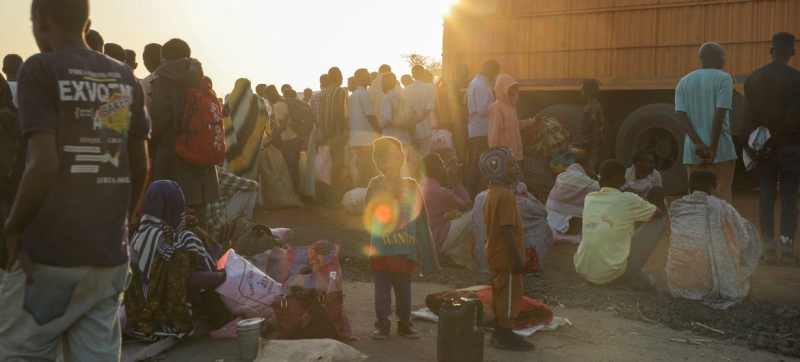
Refugees from Sudan arrive in South Sudan. South Sudan: Without political will, peace deal at risk Peace and security
The international community cannot continue to support the stalled implementation of the peace agreement in South Sudan unless local leaders have the political will to accelerate the process, Nicholas Haysom, Special Representative of the Secretary-General and Head of the UN Mission in South Sudan (UNMISS), said at a meeting of the UN Security Council.
A new two-year period for the implementation of the 2018 Revitalized Peace Agreement begins in February 2025, and the transition process has been extended for the fourth time, Haysom recalled.
Political Process
Haysom welcomed the commitment to support civic and political space in the country. He said UNMISS would continue to work with government institutions, political parties, women, youth and people with disabilities to facilitate critical debates, including on constitution-making, justice and accountability.
The Special Representative also said that in Bentiu, the provincial government had deployed a mobile court for the first time using its own resources, while in Renk, one had been launched with UNMISS support. It will hear more than 100 cases, including sexual and gender-based violence. However, Haysom said that while there had been some progress, none was enough to move the processes forward to hold elections and adopt a new constitution.
“A unified approach by the regional and international community must make clear the need to avoid another extension,” he told the Security Council. “The parties should be under no illusions: the international community does not have the resources to support the implementation of a peace agreement ending with elections if there is neither the political will to accelerate the achievement of key indicators nor the contribution of public funds.”
Humanitarian crisis
According to the head of UNMISS, the civilian population, in particular women, children and marginalized groups, continues to suffer from intercommunal violence.
The mission continues to fulfill its mandate to protect the country’s inhabitants, Haysom noted. “We have launched a new initiative to curb conflict-related sexual violence, working with communities on early warning and patrols,” he said.
The rapporteur also touched on the impact of the conflict in Sudan on South Sudan, as evidenced by the unrest following reports of South Sudanese being killed in Wad Medani, according to his briefing. Since the conflict began in April 2023, the number of refugees and returnees from Sudan has exceeded one million. Meanwhile, an estimated 9.3 million South Sudanese already require some form of humanitarian assistance.
The population is also facing an economic crisis: the average cost of a food basket has increased by 200 percent, the inflation rate is 107 percent, and civil servants have not been paid their salaries for about 10 months.
Emergency response
Meanwhile, the 2024 floods have worsened the cholera situation, with more than 23,000 cases reported, Haysom said. While efforts in health, water and sanitation have helped contain the spread of the disease in some places, the problem remains, particularly in hard-to-reach areas.
The humanitarian needs and response plan for 2025 aims to help 5.4 million people and includes $1.7 billion in funding. It is vital that the funds are fully delivered, Haysom said.
